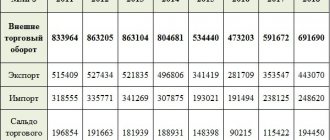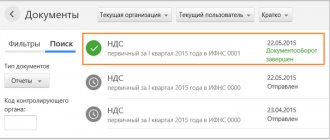From the point of view of the possibilities of ordinary commerce, a business that is associated with foreign economic activity is the highest level of professionalism and the most profitable type of entrepreneurial activity.
The status of a participant in foreign economic activity requires personnel to move to a new level of knowledge of trade, customs, currency and international legislation. Knowledge in the field of currency transactions, accounting and tax accounting, document flow and reporting on foreign trade activities is also required. In addition, this status presupposes familiarity with the regulatory and permitting government agencies that regulate foreign trade activities, with direct and counter checks and reconciliations.
In this article we will look at the features of documenting foreign economic transactions (export-import transactions, contracts), as well as some of the subtleties of accounting and tax accounting of foreign economic activity. We will tell you about the specifics and features, about the varieties and main stages, about the control and regulation of foreign trade activities, about how to properly organize these business processes and manage them.
Aspects affected by foreign trade activities
Foreign economic activity (FEA) is an economic activity in which an economic entity registered in the Russian Federation interacts with foreign partners.
Possible with it, as with relationships that take place only within the Russian Federation, are any business transactions: purchase and sale (and not only goods, but also works/services), receipt and provision of borrowed funds, contributions to a management company or property, rent , receipt/payment of dividends, business trips, settlements of claims. Because of this, any of the accounting accounts provided for in the chart of accounts approved by Order of the Ministry of Finance of the Russian Federation dated October 31, 2000 No. 94n may be involved in accounting operations. See here for what a working chart of accounts might look like.
However, the accounting process in foreign economic activity acquires its own characteristics due to the emergence of:
- a sufficiently large number of additional documents;
- settlements carried out in foreign currency;
- additional rules related to foreign business trips;
- special procedure for VAT accounting and reporting;
- discrepancies in the accounting periods for income from exports for profit and for VAT related to it;
- the need for taxation of income paid to foreign partners and additional reporting on them.
It is very important to take into account foreign trade activities correctly! ConsultantPlus experts explained in detail how to do this. Full trial access to the K+ system can be obtained for free. If you are a supplier and sell goods for export, this ready-made solution will help you create the correct accounting transactions, and if you are a buyer of imported goods, then this material will help you.
SOLUTION
How to solve these problems?
There are several options for organizing and conducting foreign economic activity (each of them has its own pros and cons): Independent conduct of foreign economic activity. But this approach requires the company to have highly paid professional employees and will entail high costs associated with maintaining such a staff.
Use of “black” brokers. This approach is the most risky. The “gray” ones have an official license, but take advantage of various shortcomings and loopholes in customs legislation, and the “black” ones are mainly private individuals with connections at customs or legal entities with “fake” licenses. They work without any guarantees and do not bear any responsibility. Very often they disappear along with the money.
Transfer of part of the work and functions on foreign trade activities to external contractors (partial outsourcing). This approach will help solve some problems.
Full-fledged services for conducting foreign trade activities by a third-party specialized company (full outsourcing). The customer can retain the management of the foreign economic transaction.
Comprehensive support and support for foreign trade activities based on outsourcing of services - a solution to all problems!
The most effective solution is to switch to complete outsourcing of foreign trade activities as part of comprehensive accounting and tax services for business. This will allow the company to conduct transactions and carefully monitor their accounting and tax purity, taking into account the laws of those countries whose companies are parties to the transaction under a foreign trade contract.
Stages of implementation of the optimal scheme for remote support of foreign economic activity
A team of experienced specialists (consultants, accountants, tax specialists, lawyers, programmers) will provide advice on foreign economic activity, analyze the proposed foreign economic transaction and audit existing transactions, prepare recommendations for correcting errors in accounting and tax accounting of past periods or make changes independently.
- Audit of current foreign trade activities
- Identifying problems
- Setting business goals, defining tasks
- Development of an action plan (strategy)
- Formation of a team of specialists
- Beginning of work
- Adjustment of the interaction scheme (if necessary)
- First results (efficiency test)
- Achieving business goals
Scheme 2 – Main stages of implementation of the remote accounting support scheme for foreign trade activities
As a result of the implementation of the remote servicing scheme for foreign trade activities, the manager receives:
- a brief report describing areas of increased risk associated with conducting foreign trade activities;
- assessment of the work of the foreign trade accounting department and reflection of transactions in tax returns;
- assessment of the correctness of registration of import transactions in the bank;
- description of possible ways to optimize, improve foreign economic activity, other tips and recommendations.
Cost of services, terms and other terms of cooperation
Within the framework of remote accounting support for foreign trade activities, there are several options for cooperation. This could be a subscription accounting service for foreign economic transactions with a fixed cost, or a project to restore accounting and tax accounting for foreign trade activities with a certain budget.
The volume of work and the price of services are calculated individually depending on the composition of the project team, the number of trading operations and the expected inclusion in the time interval. All initial data for calculating the cost of services for foreign economic activity are reflected in the contract (both in the project contract and in the contract for subscriber support and support of foreign economic activity).
Foreign trade automation tools
To increase the efficiency and efficiency of processes, as well as for ease of work, remote specialists use automated information accounting systems (for example, 1C:Enterprise of any versions and configurations), as well as various software. All these automation tools (programs, systems) are used, among other things, for preparing a package of documents and submitting reports. The presence of such automated tools is a competitive advantage for specialists who provide comprehensive support for foreign economic activities.
For competent and comprehensive management of foreign trade activities, contact the experts!
How and who will keep accounting and tax records of foreign economic activity depends only on you. But it is quite difficult to understand all the intricacies of tax and foreign trade accounting on your own. Entrust this work to professionals who will give detailed advice on this issue, offer a ready-made or develop an individual scheme for optimizing and improving foreign economic activity, thanks to which you can improve your financial performance.
One of these experts is the Financial Consulting company. We have been working in the consulting services market for a long time and have extensive experience in comprehensive accounting support, as well as servicing and supporting individual areas of accounting. One of our specializations: full-fledged organization and management of foreign economic (foreign trade) activities; conducting, control and automation of foreign trade activities. Contact us for help - and our specialists and foreign trade consultants will increase the efficiency of your business and make the financial return from it more tangible.
You can order services for support and servicing of a foreign economic enterprise (company) on our website, using the electronic feedback form or by calling the capital (Moscow) and regional offices. Successfully and effectively organize, maintain, support, automate and optimize foreign trade activities - this is our job!
What has changed in the field of foreign trade activities in 2020-2021
It is necessary to note two important regulations that will affect the procedure for currency control in 2020-2021:
- Instruction of the Bank of Russia “On the procedure for residents and non-residents to submit supporting documents to authorized banks...” dated August 16, 2017 No. 181-I.
- Law “On Amendments to the Federal Law “On Currency Regulation and Currency Control” dated August 2, 2019 No. 265-FZ, which liberalized restrictions on foreign exchange transactions by residents using accounts (deposits) opened with banks located outside of Russia, and repatriation of funds.
Instruction No. 181-I has been in effect since 2021, when there were:
- transaction passports have been canceled (a contract is used instead of a transaction passport);
- the bank's refusal to register the contract is excluded;
- The obligation to submit documents related to foreign exchange transactions under contracts with an amount of obligations of less than RUB 200,000 has been cancelled. (only information about the transaction type code is provided);
- certificates on currency transactions were cancelled;
- other innovations and amendments have been introduced.
From 2021, including:
- control over the repatriation of foreign currency earnings has been abolished if the export of goods is carried out in Russian rubles (with some exceptions);
- it became possible to credit trading proceeds to a current account in a foreign bank for up to 30 calendar days;
- penalties for export transactions with minor violations of foreign exchange controls have been relaxed;
- it became possible to open ruble accounts abroad and carry out settlements with foreign counterparties in rubles.
What is the essence of currency control in customs authorities, see this publication.
Since 2021, officials have introduced the “One Window” system in the field of regulation of foreign trade activities. Find out what the innovation brought in the directory from ConsultantPlus. If you do not have access to the K+ system, get a trial online access for free.
Course program
The course program should be developed by experts in the field of foreign trade management, taking into account the latest changes in regulatory documents. Classes are focused on obtaining practical skills. Unlike university programs, where a large share of training is based on the principle of transferring theoretical knowledge, centers of additional professional education should set themselves the task of creating professional experience for the student.
Choose a full-time or distance learning course where you will learn:
- maintain accounting of foreign trade activities in any company;
- understand and organize your work taking into account the norms of Russian legislation, as well as other countries. Take into account legal aspects governing the exchange of information with regulatory government agencies;
- understand the issues of customs regulation of foreign economic transactions, as well as the requirements for the preparation of international documents;
- navigate the tax rules for export and import transactions, determine the tax base, calculate VAT, and produce the necessary payment algorithms;
- work with exchange rate differences when calculating currency, buy and sell currency, correctly reflect the listed operations in the program;
- analyze well the financial issues of foreign economic activity at your enterprise, look for ways to improve it;
- correctly fill out documents in the information base, prepare foreign trade reports.
Additional documents arising during foreign trade activities
The use of foreign trade activities will require the use of a large number of documents in the work, which are not needed if the activity is carried out only within the Russian Federation. Moreover, these will include not only those issued by the Russian side, but also those received from foreign partners. In relation to export/import, this will, in particular, be:
- contracts with foreign partners, created taking into account the delivery conditions reflected in Incoterms;
- payment documents of foreign partners;
- instructions to buy or sell currency;
- documents (apostille) confirming the fact of registration of a foreign partner in a foreign country;
- cargo customs declarations (CCD);
- invoices that will become accounting documents for shipment;
- foreign shipping documents and foreign documents (invoices) of suppliers;
- applications for the import of goods and payment of indirect taxes, lists thereof and a special VAT declaration for imports from the countries of the Customs Union;
- additional lines and sections in the regular VAT return;
- declaration of income received from sources outside the Russian Federation;
- tax calculation containing data on income paid to foreign partners;
- documents for payment of taxes paid in connection with the payment of income to foreign partners;
- other documentation.
Most of the documents addressed to or received from a foreign partner will initially be created in 2 languages, and documents issued only in a foreign language must be accompanied by a translation of the text, which will be required by the Federal Tax Service during verification.
At the same time, not only the volume of documents increases, but also the number of inspections requiring the submission of copies by tax authorities (in connection with VAT refunds on exports) and customs (in connection with the declaration of goods).
This article will tell you about the types of currency clauses in contracts.
For whom should the distance learning course be designed?
Please note: the course program was developed specifically to teach specialists how to conduct and understand accounting for foreign economic transactions. The program can help not only the company's leading accountants, but also other employees who want to understand and master this area. An ideal course should be useful for:
- chief accountant. The foreign trade accounting course will teach you how to correctly enter transactions, understand accounting accounts, and prepare accounting and tax reporting. Understand tax issues;
- ordinary accountants and 1C operators. Beginning specialists will master the accounting of primary documentation of foreign trade activities, learn to reflect the necessary transactions in the information base, study the stages of communication with foreign partners on reconciliations and period closure;
- leader and entrepreneur. They will need the course to form ideas about how foreign trade activities are reflected in accounting, how business transactions affect financial results, and how to influence profit growth.
A retraining or advanced training course may also be useful for other categories of specialists who need to refresh their knowledge after breaks in work, as well as study the main regulatory and legal issues of accounting for foreign trade activities today.
Accounting: features for foreign economic activity
Features of foreign trade accounting will require:
- accounting for amounts received or expressed in foreign currency (bank, cash desk, settlements with counterparties), in parallel in two currencies: foreign with its conversion into rubles according to the rules of PBU 3/2006, approved by order of the Ministry of Finance of the Russian Federation dated November 27, 2006 No. 154n;
- tracking the dates of transfer of ownership of exported/imported goods according to the Incoterms specified in the contract;
- formation of the value of property acquired abroad with the additional inclusion of customs duties (clause 1 of Article 160 of the Tax Code of the Russian Federation);
- reflecting expenses for foreign business trips in accordance with the rules established for them by Decree of the Government of the Russian Federation of October 13, 2008 No. 749;
- inclusion in the financial results as of the reporting date of the results of revaluation of foreign currency balances of funds and settlements with counterparties expressed in foreign currency;
- organization of separate analytics on accounting accounts and in other registers to obtain information necessary for reporting of all types (accounting, tax, statistical) taking into account the presence of foreign trade activities;
- control over the completeness of receipt of funds in payment under a foreign exchange contract with a foreign buyer;
- reflection of taxes additionally charged in connection with the introduction of foreign economic activity;
- compliance with special rules for deducting VAT on expenses associated with both exports and imports;
- filling out all tax reporting documents correctly and in accordance with accounting records.
Distance learning format (online)
We recommend a full-time training format so that you do not need to go anywhere and waste time on the road. For example, many of our students are trained online even from remote Russian cities.
To achieve an effective result, we recommend dividing the learning process into the following stages:
1) Start studying lectures. For this purpose, the training center will provide you with the necessary set of useful materials: text lectures, current scientific literature, normative and reference sources, e-books, audio textbooks. All materials, as a rule, are carefully selected for individual lesson topics.
2) Participate in lectures and seminars online. The broadcasts take place in real time, the recording is discussed in advance.
3) Practice your acquired knowledge by completing practical cases and assignments.
4) To consolidate your knowledge, take final tests and a qualifying exam, if this is included in the program.
Also keep in mind that you will receive daily online support from a mentor. To communicate, you will need an Internet connection.
Lectures in an online format allow you to create the result of presence in the classroom, the effect of live communication and full inclusion in the learning process. These classes significantly improve the quality of learning. Practical cases are analyzed in detail, which helps students gain professional experience in accounting for foreign trade activities.
VAT and tax accounting for profits in foreign trade
The largest number of additional actions in terms of taxation will be necessary for the most complex tax, which in the Russian Federation is VAT. Special attention will be required here:
- export, which requires the organization of separate accounting of all operations on it, compliance with deadlines for collecting a package of necessary documents, identifying unconfirmed and late confirmed shipments, monitoring the completeness of payment for supplies by the counterparty, filling out additional sections of the declaration, regularly preparing large packages of documents for control by the Federal Tax Service;
- imports from countries outside the Customs Union;
ConsultantPlus experts spoke about the nuances of calculating VAT on imports from countries outside the EAEU. To properly organize accounting and determine the amount of VAT, get trial access to the system and go to the Ready-made solution. It's free.
- imports from the countries of the Customs Union, in which it is necessary to comply with fairly limited deadlines for submitting tax documents to the Federal Tax Service, paying it in conjunction with payment - submitting for deduction, drawing up an additional declaration;
- the obligation to pay tax when paying for a number of services (clause 1 of Article 148 of the Tax Code of the Russian Federation) provided outside the territory of the Russian Federation, and filling out a special section of the declaration for it;
- the presence of features of taxation of goods that arise in certain situations both during their export and import (Article 151 of the Tax Code of the Russian Federation).
What you need to follow when organizing separate accounting for exports - read the material “How separate accounting for VAT is maintained (principles and methods)” .
With regard to income tax, one should not lose sight of the fact that export shipments are taken into account in income at the moment of transfer of ownership (risks) to the goods, i.e. practically at the time of shipment, and the right to deduct VAT on such shipment can be confirmed completely another tax period. That is, the tax bases for profit and VAT when exporting for the same period do not always coincide, and it is impossible for profit to take into account shipments for export in connection with the fact of confirming the right to deduct VAT.
So
Foreign trade accounting for imports is characterized by an increased volume of documentation, the intricacies of accounting for business operations, taxation, preparation and completion of reports, and regular changes in laws. A businessman can get rid of the problems of foreign trade accounting if he contacts. Our qualified, experienced specialists, with guarantees, organize accounting in compliance with the deadlines for processing documents, submitting reports, interacting with the tax office and banks, taking into account all the subtleties of import transactions of foreign trade activities and legal requirements.
Results
The organization of accounting for foreign economic activity entails not only an increase in the number of accounting documents used, but also a number of features: both in the reflection of accounting transactions and in the preparation of reporting.
Sources:
- Tax Code of the Russian Federation
- Federal Law of 02.08.2019 No. 265-FZ
- Bank of Russia Instruction No. 181-I dated August 16, 2017
- Order of the Ministry of Finance of the Russian Federation dated November 27, 2006 No. 154n
- Order of the Ministry of Finance of the Russian Federation dated October 31, 2000 No. 94n
- Decree of the Government of the Russian Federation dated October 13, 2008 No. 749
You can find more complete information on the topic in ConsultantPlus. Free trial access to the system for 2 days.
Diploma of completion of training
After passing the final exam, all students of professional retraining courses in foreign trade accounting are issued an official diploma and are awarded a qualification confirming the presence of the necessary knowledge and skills to work in international companies. If you choose short-term training, you will receive a certificate of advanced training or a certificate.
Specialists who have completed retraining or advanced training courses in foreign economic activity are in demand today in many companies. This means that you will have the opportunity to find many attractive vacancies with high earnings.
Example of goods import operations
The company Confectioner LLC signed a contract for the supply of imported goods worth 5 thousand dollars. The conversion amounted to 2,000 rubles, customs VAT – 54,000 rubles. The shipment was made after prepayment on December 1, 2016. The customs duty amount was 10%. The currency purchase rate was 60 rubles on the date of payment.
The following entries are made in the accounting of Confectioner LLC: (click to expand)
- The write-off of the ruble equivalent is reflected: Dt 57 Kt 51 in the amount of 300,000 rubles;
- Conversion taken into account: Dt 52 Kt 57 in the amount of $5,000 (300,000 rubles);
- Payment for the cost of the service is taken into account: Dt 91/2 Kt 51 in the amount of 2,000 rubles;
- An advance payment was made to the supplier for the goods: Dt 60 Kt 52 in the amount of $5,000 (300,000 rubles);
- The accrual of customs VAT is reflected: Dt 19 Kt 68 in the amount of 54,000 rubles;
- Payment of VAT at customs is taken into account: Dt 68 Kt 51 in the amount of 54,000;
- Payment of the fee is taken into account: Dt 76 Kt 51 in the amount of 30,000 rubles;
- The receipt of goods is reflected: Dt 41 Kt 60 in the amount of 300,000 rubles;
The receipt of goods is carried out after the transfer of ownership. The moment of transition is reflected in the supply contract. When the rights to the goods are retained by the foreign partner, accounting is carried out on the balance sheet.
Cost of accounting services
| Service | Price |
| Accounting services for organizations on OSN - general mode | from 8000 rub./month. |
| Accounting services | from 4000 rub. |
| Accounting services for organizations and individual entrepreneurs using the simplified tax system | from 4000 rub./month. |
| HR and payroll accounting | from 3000 rub./month. |
| Accounting for cash transactions | from 3000 rub./month. |
| Electronic reporting | from 2000 rub./month. |
| Zero reporting, simplified tax system | 3500 rub. |
| Zero reporting, OSN | 3600 rub. |
| Accounting restoration, simplified tax system 6% | from 4000 rub. |
| Accounting restoration, simplified tax system 15% | from 7000 rub. |
| Accounting restoration, OSN | 10,000 rub. |
| Accounting services in retail trade | Calculator |
| Accounting services in wholesale trade | Calculator |
| Accounting services in production | Calculator |
| Accounting services in construction | Calculator |
| Preparation and submission of one report (to the Federal Tax Service, Pension Fund, Social Insurance Fund) | from 1500 rub. |
| Preparation and submission of all quarterly reports for organizations and individual entrepreneurs | from 2000 rub. |
| Accounting setup | from 3000 rub. |
| Registration (removal) on the simplified tax system | 1500 rub. |
| Registration (removal) on UTII | 1500 rub. |
| Application (removal) of a Patent | 1500 rub. |
Advantages of courses and seminars of the training center “What to do Qualification”
We see no point in stretching out the learning process in order to gain a certain number of hours. We place the specialist’s practical experience at the center of training. Therefore, you study only the necessary practical issues of the chosen field in one-day seminars or webinars.
Look for current dates and topics in the schedule
Classes in the program are interesting and exciting, since there are no monotonous conversations using complex terminology during the process. Teachers dilute accounting with practical examples from the life of real organizations. After completing your training with us, you can confidently start working in an organization with foreign trade activities.
Students are given the opportunity to address individual issues that cause difficulties in their work, take part in discussions, and ask for advice from other participants in the learning process. A personal supervisor helps organize training.








